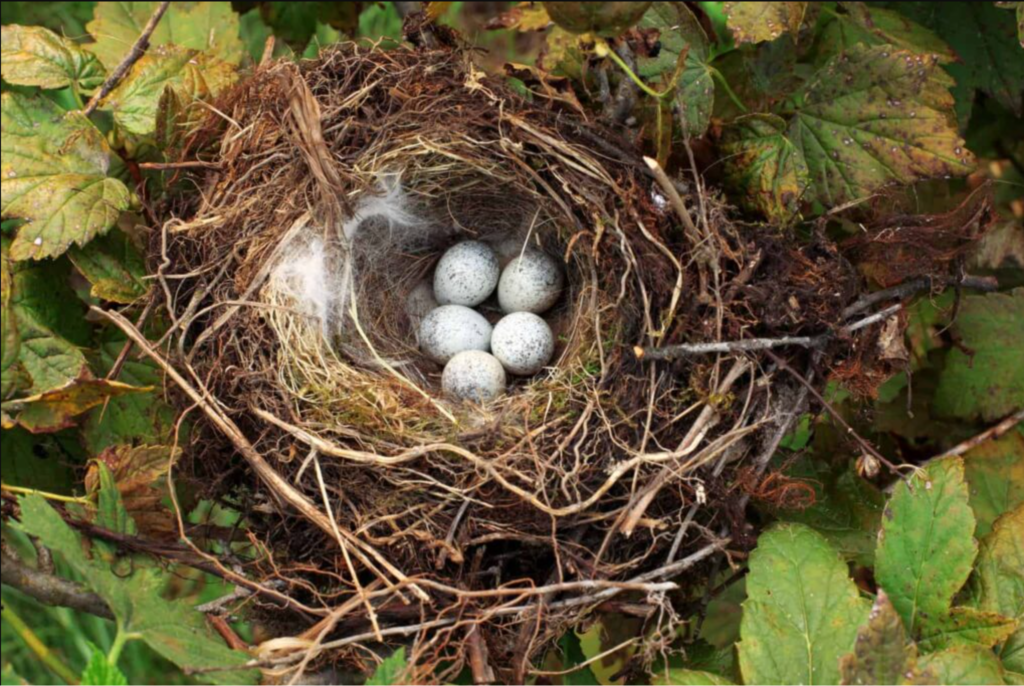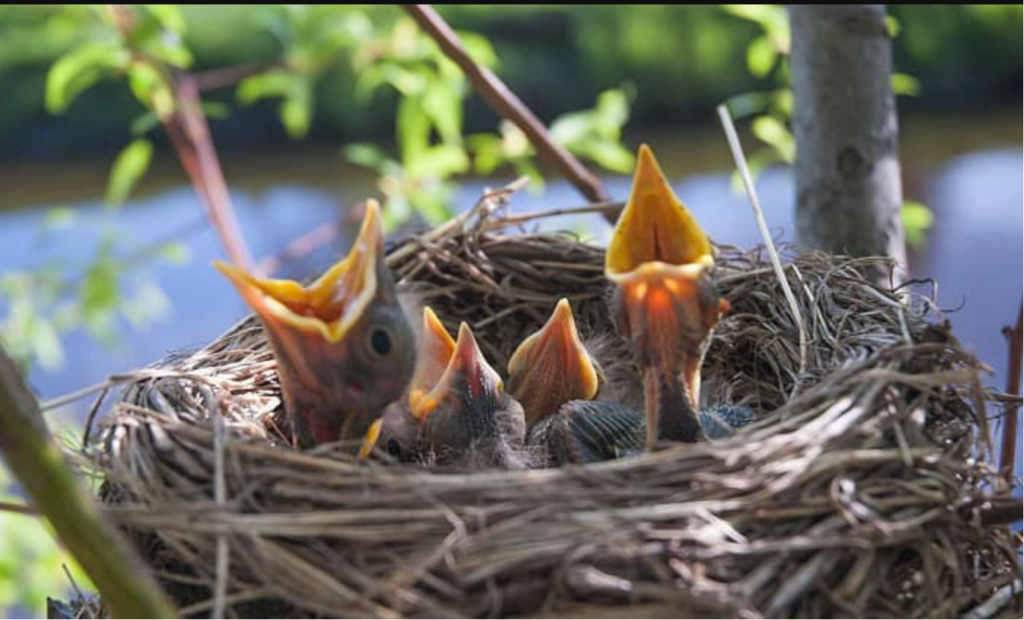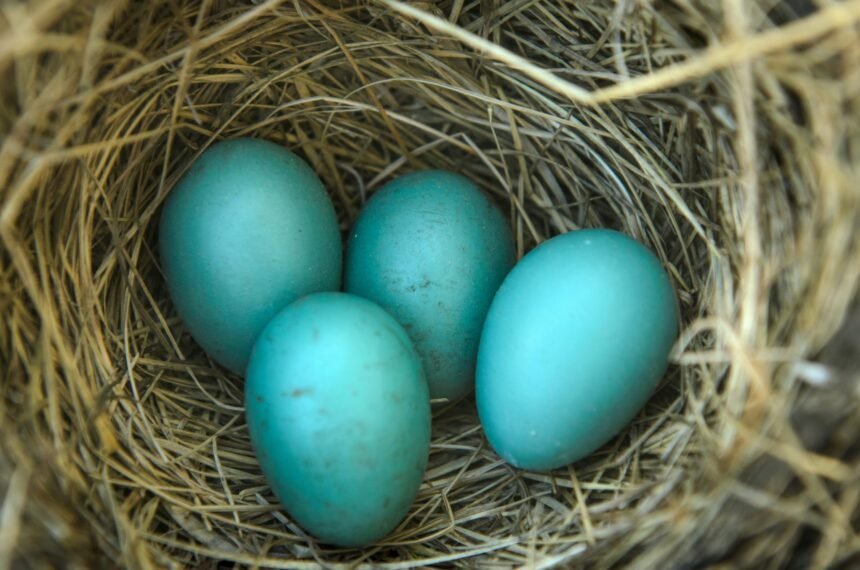One of the most common myths about wildlife is that a mother bird will reject her chick if it is touched by a human. Many people believe that birds can smell the human scent on their young and will abandon them as a result. However, this is not true for most birds, as they have a poor sense of smell and rely on other cues to identify their offspring. In fact, touching a baby bird may not harm it at all, unless it is injured, sick, or in danger.
Scent Disruption: Mother Birds
The origin of this myth is unclear, but it may have been influenced by the observation that some mammals, such as rabbits and deer, will avoid their young if they detect a predator’s scent. However, birds are not mammals and have different ways of protecting their young. Most birds build nests that are well hidden from predators, and some even use camouflage or deception to divert attention from their chicks. Some birds, such as crows, jays, and magpies, are very intelligent and can recognize individual humans and their intentions. They may attack or harass humans who get too close to their nests, but they will not abandon their young because of human contact.
Also read : How Can We Acquire Learning? Discoveries Made By Neuroscientists About How The Human Brain Store Memories

Image source : wild bird scoop(Mother Birds)
Another reason why people may think that touching a baby bird is harmful is that they may confuse a fledgling with a nestling. A nestling is a young bird that has not grown its feathers yet and is dependent on its parents for food and warmth. A fledgling is a young bird that has grown its feathers and is learning to fly and forage. Fledglings often leave the nest before they can fly well, and may spend some time on the ground or in low branches. They may look helpless or injured, but they are not. Their parents are usually nearby, watching over them and feeding them until they are ready to fly. Touching a fledgling may cause it to panic and lose its hiding place, making it more vulnerable to predators or other dangers. Therefore, it is best to leave a fledgling alone, unless it is in immediate danger from traffic, pets, or other threats.

Image source: snopes.com(Mother Birds)
If you find a nestling that has fallen out of its nest, you can try to put it back in its nest, if you can find it and reach it safely. The parents will not abandon the nestling because of your smell, and they will continue to care for it. However, if the nest is destroyed or inaccessible, or if you cannot find the parents, you may need to contact a wildlife rehabilitator who can take care of the nestling until it is ready to be released. Do not try to raise a baby bird by yourself, as it is illegal and difficult to do so. Birds have specific dietary and behavioral needs that are hard to meet in captivity, and they may become imprinted on humans and lose their ability to survive in the wild.

Image source: today i found it(Mother Birds)
In conclusion, the myth that a mother bird will abandon her chick if touched by a human is false for most birds, as they have a poor sense of smell and identify their young by sight and sound. Touching a baby bird may not harm it at all, unless it is injured, sick, or in danger. However, it is advisable to leave a baby bird alone, unless it needs help, and to contact a wildlife rehabilitator if necessary. By doing so, you can help the baby bird grow up healthy and happy in its natural environment.
Frequently Asked Questions (FAQs)
Q: Why do mother birds abandon their chicks when touched by humans?
A: Mother birds rely heavily on scent to identify and protect their chicks. When humans touch the chicks, they can transfer unfamiliar scents, leading the mother to perceive them as compromised or in danger.
Q: Is it true that birds recognize their chicks primarily through scent?
A: Yes, birds, especially during the early stages of chick development, use scent as a crucial factor in recognizing and bonding with their offspring.
Q: How does human scent disrupt the natural bonding process between Mother Birds and chick?
A: Human scent can mask the natural scent of the chick and its surroundings, disrupting the communication and recognition signals between the mother and chick, leading to potential abandonment.
Q: Do mother birds perceive humans as predators when they touch the chicks?
A: Yes, the scent of humans on chicks may trigger the mother bird’s instinct to perceive them as potential predators, prompting her to distance herself from what she perceives as a threat.
Q: Can stress play a role in the mother bird’s decision to abandon a touched chick?
A: Yes, the act of human handling can cause stress to both the chick and the mother. The stress response may lead the mother to perceive the chick as compromised, contributing to abandonment.
Q: Is there a link between interrupted bonding and the mother bird abandoning the chick?
A: Yes, when a human intervenes by touching a chick, it disrupts the natural bonding process between the chick and its mother, potentially causing the mother to abandon the chick.
Q: Does the mother bird’s act of abandoning a touched chick have a survival instinct behind it?
A: Yes, in the wild, mother birds make quick decisions to ensure the survival of their genetic lineage. If they perceive any potential threat or compromise in a chick, abandoning it may be a calculated move to safeguard the rest of the brood.
Q: How can humans respect the natural order of wildlife interactions to avoid causing distress to mother birds and chicks?
A: Observing wildlife from a distance and minimizing direct contact with nests and chicks is crucial. Respecting the natural behaviors of mother birds contributes to their well-being and the overall balance of the ecosystem.
Remember: It’s essential to prioritize the well-being of wildlife and avoid unnecessary interference to allow them to thrive in their natural environments.
Also read : A Geologist Found The Oldest Water On Earth




































